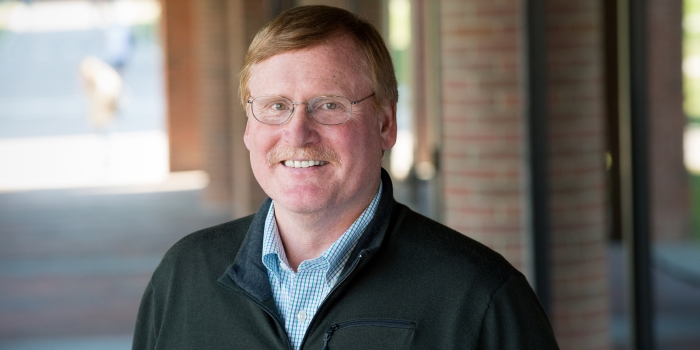This post was written by Esteban Echeverria ’19
It is May 8 — the last day of classes, and just like every three weeks or so, we have a speaker come to our class and talk to us for the whole morning. This time it is the one and only Professor Stuart Hart, and by now we should know him and his teachings pretty well.

For the ones who do not know, Dr. Hart is the backbone of The Sustainable Innovation MBA program. His research, in conjunction with other experts in the field, such as C.K. Prahalad, and Dean Sanjay Sharma, provide much of the material we study in our classes.
As we know Dr. Hart quite well by now, he decided to base his lecture on where we are now as a society, and where we are headed in the future, as well as some of his current research. After some 500 years of history, he explained the many phases of the most important economic systems the world has been going through— feudalism, mercantilism, industrial capitalism, institutional capitalism, financial capitalism. He finally mentioned the next phase that we are transitioning to— what he called the new sustainable capitalism. Each of phases have been going through a cycle of power and economic distribution that repeats itself, were we keep making the same mistakes, falling on the same bumps, and ending up in the same place, which is not exactly a good one.
We are now in a moment in history haunted by a severe climate crisis, as well as a social one, where inequality is hitting major milestones that are getting close to the point of no return. It is a point where the Milton Freedman’s “increase of shareholder value” corporate objectives, as well as the concept of tying the payment of chief executives and senior leaders to performance, are to be reviewed and thought over.
It not only has led to multinational corporations practicing stock buyback and cut R&D spending as well as operational spending including employee pay, among other strategies to raise the prices of their own stocks, but also focus on quarterly earnings reports and quick fixes to their unsustainable models. The pressure of investors, analysts, and high frequency traders has let these companies forget about the long-term strategies required to sustain their operations, as well as promote the wellbeing of their stakeholders. Shareholder primacy, as noted in the past, is not a legal obligation, but the system as of now is fixed for this purpose.
One of the objectives of The Sustainable Innovation MBA program is to create the new generation of businessmen and businesswomen determined to go about their decision making process taking not only financial, but also environmental and social aspects into account. As a student of this program, and part of this community, I would also like to act as a sustainability enabler, by attempting to contribute to corporate transformation from the inside out. Many of these public multinational corporations need to recognize their identity, strengths, and reason of existence, and use it as a tool to transform and modernize their operations and value propositions to ones that contribute to the wellbeing of the environment and society. By doing so, they secure their long term operations for the future.
Now that we have finished the lecture portion of this program, I am a step closer to become part of The Sustainable Innovation MBA alumni community, the one that is building the business leaders that the world needs. I recommend this experience to anyone that is trying to make an impact, and be part of the transformation we are going through.
